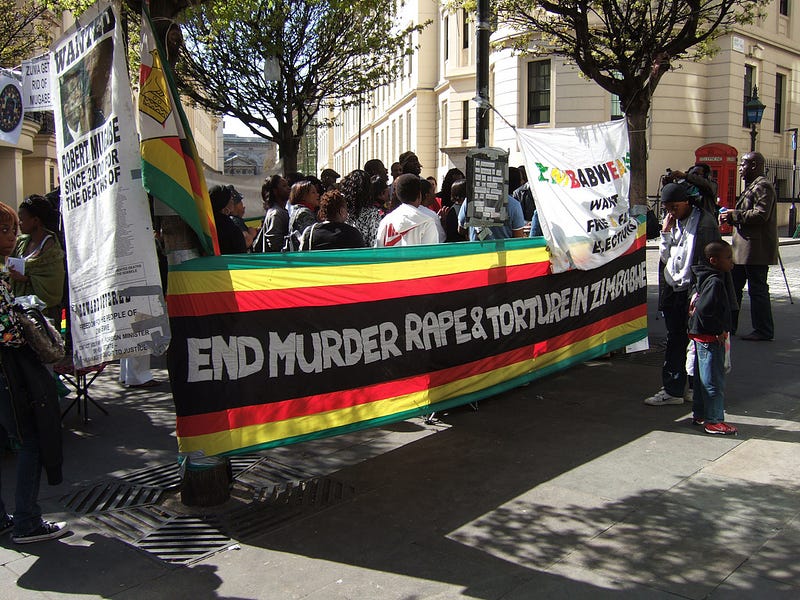
I have a cousin who was born in 1980, the year our country, Zimbabwe, got its independence from Britain. Since then, she has been a mother and a grandmother; her daughter gave birth one year ago. That makes it three generations of people who have known only one man as their president, Robert Mugabe. Mugabe finally resigned on Nov. 21, 2017 after 37 years of a regime that saw gross violations of human rights and one of the worst economic depressions in world history. As people celebrated what had become a distant dream, Mugabe’s resignation sent euphoric waves across the country. I remember running out of Kirner Johnson on Martin’s Way shouting at the top of my lungs, “Mugabe is gone!”
Mugabe’s demise started with the firing of his vice president and long time ally, Emmerson Mnangagwa, on Nov. 6, 2017. The president’s decision was seen by many as a move to boost his wife’s chances of winning the succession race against Mnangagwa. Five days later, the Zimbabwe military took control of the country and put Mugabe under house arrest. The army vehemently stated that this was not a coup but rather an operation to arrest rogue elements in government who were causing political turmoil while hiding behind the 93-year-old president. Two days later, hundreds of thousands of people from all political parties marched in the country’s capital to support the army and send a resounding message to Mugabe to step down. A day later, the ruling party ZANU PF voted Mugabe and his wife out of the party. In a dramatic twist of events, Mugabe refused to step down during his much anticipated address to the nation. His refusal to step down resulted in the parliament moving a motion to impeach him. In the middle of his impeachment, Mugabe tendered his resignation. Two days later, Mnangagwa was sworn in as the new president, putting an end to the most dramatic 14 days in Zimbabwe’s history. Even the great Shakespeare would not have written such a spectacular script of Mugabe’s demise.
Now that the warming euphoria about Mugabe’s resignation has waned away, a chilling feeling of ambivalence about the future with the new president is slowly seeping in. Many people are wondering if the new president can actually provide the democracy that people have been denied for years. Having seen Mnangagwa as Mugabe’s right hand man for over 40 years, many wonder if the new administration is the same snake that just shed its old skin. Surely you cannot blame the doubters when their new president’s nickname is “Crocodile” because of his political shrewdness and fearsome reputation of brutally crushing opposition dissent. On the other hand, Mnangagwa is lauded for his business acumen and willingness to engage with foreign investors — unlike Mugabe. Thus, there is hope that Mnangagwa might be the right person to resuscitate Zimbabwe’s lifeless economy.
Mugabe’s resignation might have come in the weirdest of circumstances but the chance to start fresh as a country is here. The new president should recognize that he has the support of well-educated populace that is excited and ready to be proactive in taking Zimbabwe to new heights. My advice to President Mnangagwa is that he cast his net across political and tribal lines as he picks members of his cabinet; the country needs a vibrant and creative administration. The economy is surely his priority but the electoral system needs to be reformed to guarantee free and fair elections. While the country applauds the army for gallantly leading a bloodless coup, there is need for the nation’s stakeholders to ensure that the military remains apolitical in the upcoming 2018 general elections. The younger generation should consider voting and taking part in the elections as a responsibility, more than just a way to exercise a right. With over two million new eligible voters, the younger generation has a chance to set Zimbabwe’s path towards unchartered waters of economic and social prosperity. Rise up Zimbabwe!

















